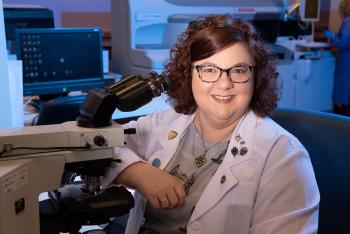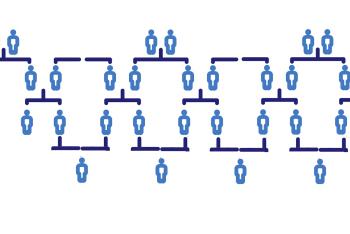Inspira Health is featured in a national colorectal cancer care report issued by Fight Colorectal...
Read MoreYellow Status: Due to the positivity rates of respiratory viruses in the area, masks are required for staff and strongly encouraged for patients and visitors in high-risk clinical areas at Inspira Health facilities as of 1/8/25.

Learn why regular cancer screenings are important and how screening tests like CT scans, MRIs, and ultrasounds can help detect cancer.

Regular screening is the cornerstone of cancer detection—the earlier it’s detected, the easier it is to treat. But how do screenings work? And what do their findings mean? To help us understand the ins and outs of cancer detection, we spoke with Kristin McLachlan, director of ambulatory imaging services at Inspira Health.
INSPIRA: When and how often should I get screened?
EXPERT: The U.S. Preventive Services Task Force (USPSTF) offers screening recommendations we should all follow for different types of cancer; however, certain risk factors may require some people to be more aggressive in getting screened. Really, screening depends on the individual, the type of cancer, their age, family history, preexisting conditions, personal health history, demographics and other risk factors.
INSPIRA: What are the different types of cancer screenings?
EXPERT: The goal of screening is not necessary to detect cancer, but to detect symptoms or abnormalities as early as possible. That way, you can get the tests—such as biopsies—that will diagnose your condition and potential cancerous abnormalities. Screening often involves a combination of physical exams, lab tests, images—like MRIs, CT scans and ultrasounds—and genetic testing. For example, we use mammograms and colonoscopies to screen for breast and colon cancers, respectively.
It’s important to know that blood tests are not used to detect cancer, but to mark cancer. For example, people with ovarian cancer usually have high levels of a protein called CA-125 in their blood. With a CA-125 blood test, we might be able to detect very early symptoms in high-risk patients. Additionally, elevated tumor markers may also help us find other conditions that are happening in the body at the same time.
INSPIRA: Can a CT scan or MRI detect cancer? What is the difference between the two?
EXPERT: Though oncologists use CT scans and MRIs to detect various cancers, they work differently. CT scans use an advanced type of X-ray to take cross-sectional images of the body and can show the size and shape of the tumor. Unlike CT scans, MRIs do not use radiation; they instead use magnetic fields and radio waves to create images of the body.
INSPIRA: Can an ultrasound detect cancer?
EXPERT: Ultrasound imaging can show abnormal growths or lesions. Any abnormality seen on ultrasound imaging scan, may require the need for additional imaging with either a CT or MRI scan.
INSPIRA: How should someone prepare for a CT scan or MRI?
EXPERT: Preparing for your CT scan or MRI starts with understanding what the tests are like and that these painless screenings give you peace of mind about knowing your health status. Though CT scans last an average of 15 minutes and MRIs can last up to two hours, feel confident knowing that you don’t have to go into the hospital to get screened. Both can be administered in an outpatient setting.
Learn more about cancer screenings at Inspira or schedule your screening at an Inspira Imaging Center near you.

Inspira Health is featured in a national colorectal cancer care report issued by Fight Colorectal...
Read More
For 81-year-old artist Bonnie Flanagan, an overall assessment of her health, which included a self...
Read More
Uncover the hidden connections between your family's past and your future well-being as we delve...
Read More
The material set forth in this site in no way seeks to diagnose or treat illness or to serve as a substitute for professional medical care. Please speak with your health care provider if you have a health concern or if you are considering adopting any exercise program or dietary guidelines. For permission to reprint any portion of this website or to be removed from a notification list, please contact us at (856) 537-6772